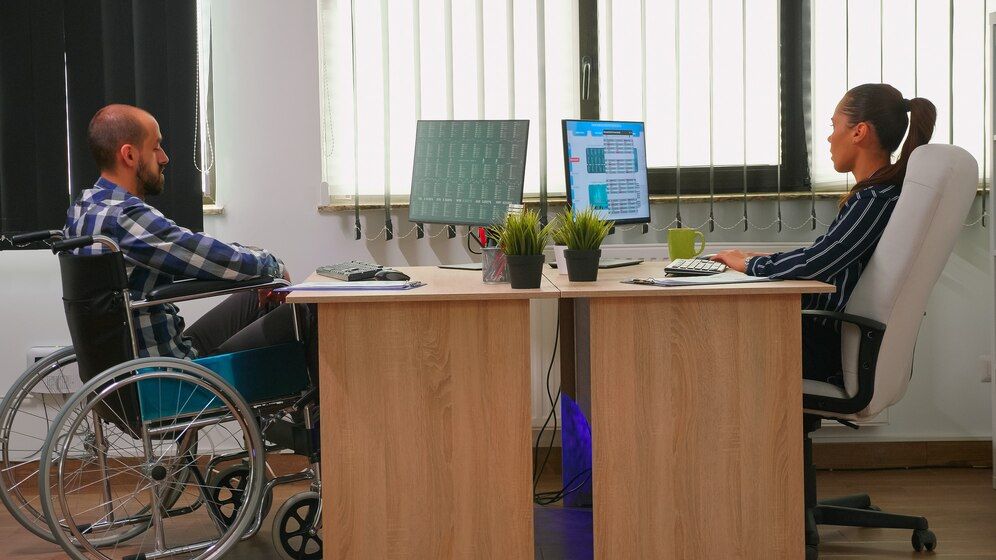
In the dynamic landscape of employment and health challenges, individuals often find themselves navigating the complexities of various benefit programs. One common question that arises is whether it’s possible to collect unemployment and disability benefits simultaneously in California. This article aims to provide clarity on this issue, addressing key topics such as eligibility requirements, the interplay between unemployment and disability benefits, and state programs that could offer support.
Understanding the Basics: Unemployment and Disability Benefits
Unemployment Benefits
Unemployment benefits are designed to provide financial support to individuals who have lost their jobs through no fault of their own and are actively seeking employment. The California Unemployment Insurance Code governs the state’s unemployment insurance program, which is administered by the Employment Development Department (EDD).
Disability Benefits
On the other hand, disability benefits are intended for individuals who are unable to work due to a medical condition. The State of California offers State Disability Insurance (SDI) benefits, providing partial wage replacement to eligible workers. The process involves a disability claim, and benefits are typically based on the individual’s inability to perform their usual work.
Can You Collect Unemployment and Disability Benefits Simultaneously?
The question of whether you can collect unemployment and disability benefits at the same time in California is not a straightforward one. In some cases, individuals may be eligible for both types of benefits, but there are certain considerations to keep in mind.
Two Exceptions
Reduced Hours and Wages: If an individual is working reduced hours and earning less than their usual wages due to a disability, they may qualify for unemployment and disability benefits.
Two-Week Waiting Period: Unemployment benefits often have a two-week waiting period before payments begin. During this period, if an individual is unable to work due to a disability, they may be eligible for disability benefits.
It’s important to note that eligibility is determined on a case-by-case basis, and individuals should consult with professionals or administrative law judges to assess their specific situation.
Understanding the Requirements for Receiving SDI and SSI Benefits
State Disability Insurance (SDI) and Supplemental Security Income (SSI) are distinct programs with different eligibility criteria. However, individuals may wonder about the possibility of receiving both SDI and SSI benefits simultaneously.
SDI and SSI Benefits
SDI Benefits: SDI provides temporary disability insurance benefits to eligible workers who are unable to work due to a non-work-related illness or injury. It does not consider financial need in its eligibility criteria.
SSI Benefits: SSI, administered by the Social Security Administration (SSA), is a needs-based program that provides financial assistance to individuals with limited income and resources. Disability is one of the qualifying factors.
Can You Get Unemployment While on SSI?
Individuals receiving Supplemental Security Income (SSI) benefits may also have questions about eligibility for unemployment benefits. While SSI is not based on employment history, unemployment benefits are tied to recent employment.
Typically, if you are receiving Social Security disability benefits, you may not be actively seeking employment, which is a requirement to receive unemployment benefits. However, it’s crucial to understand the nuances of individual cases, and consulting with professionals is advised.
Applying for Unemployment and Disability at the Same Time
If you find yourself in a situation where you believe you qualify for unemployment and disability benefits, the process of applying for both can be intricate. Here’s a step-by-step guide to help you navigate the application process:
Determine Eligibility: Assess whether you meet the eligibility criteria for unemployment and disability benefits based on your circumstances.
Contact the Relevant Agencies: Reach out to the Employment Development Department (EDD) for unemployment benefits and the California State Disability Insurance (SDI) program for disability benefits. Gather information on the application processes for each.
Submit Applications: File separate applications for unemployment and disability benefits, providing accurate and detailed information. Be transparent about your situation to avoid potential issues.
Seek Professional Advice: Given the complexity of these matters, consider seeking advice from disability lawyers or professionals experienced in employment law. They can guide you through the process and ensure you meet all requirements.
Supplementing Your Income While Waiting for Disability
Waiting for disability benefits to be approved can be a challenging period, and individuals may explore avenues to supplement their income during this time. Here are some considerations:
State Programs: California offers various state programs aimed at providing financial assistance to individuals facing disabilities. Familiarizing yourself with these programs, such as Disability Insurance Benefits and Paid Family Leave Benefits, can help bridge the financial gap during challenging times.
Part-Time Work: Depending on your medical condition, explore opportunities for part-time work that align with your abilities. Ensure that any income earned does not jeopardize your eligibility for disability benefits.
Consult Professionals: Before making decisions that could impact your benefits, consult with professionals who can provide tailored advice based on your unique circumstances.
How Legal Counsel Can Maximize Your Benefits
When facing the intricate scenario of potentially collecting unemployment and disability benefits in California, enlisting the help of an attorney is not just a matter of legal assistance – it’s a strategic move to maximize your benefits. Here’s how legal counsel can play a crucial role in optimizing your situation:
Benefit Optimization Strategy: An experienced attorney can devise a customized strategy to optimize your benefits. This includes exploring avenues for maximizing unemployment and disability benefits within the bounds of the law.
Identification of Potential Pitfalls: Attorneys can foresee potential pitfalls that may jeopardize your eligibility for benefits. Whether it’s related to the application process or ongoing compliance, their proactive approach can prevent issues before they arise.
Coordination of Benefits: Coordinating between different benefit programs requires a nuanced understanding of the legal landscape. Attorneys can effectively navigate the complexities to ensure that you receive the full spectrum of benefits you are entitled to.
Negotiation and Settlements: In cases where disputes or negotiations may arise, an attorney acts as your advocate. They can negotiate with relevant agencies to secure favorable terms and, if necessary, pursue settlements that align with your best interests.
Ensuring Timely Payments: Delays in benefit payments can be financially burdensome. Attorneys can intervene to expedite the process, ensuring that you receive the financial support you need in a timely manner.
Protection Against Retaliation: Legal counsel can provide protection if concerns about retaliation from employers or agencies arise. They can ensure that you are not unfairly treated for pursuing the benefits you are entitled to.
Expert Advice on Complex Cases: Some cases involve unique circumstances that demand specialized knowledge. Attorneys specializing in disability and employment law can offer expert advice tailored to your specific situation.
Educating Clients on Rights: Legal professionals play a crucial role in educating clients about their rights. This empowerment allows individuals to make informed decisions and actively participate in the process of securing their benefits.
Representation in Legal Proceedings: In the event of legal disputes, having an attorney to represent you is invaluable. Whether it’s an administrative hearing or a legal proceeding, having legal representation enhances your chances of a favorable outcome.
Strategic Use of Documentation: Attorneys understand the importance of documentation. They can guide you on what evidence to gather and how to present it strategically to support your case, increasing the likelihood of a successful disability and unemployment claim.

Connect with BLG for Personalized Legal Assistance
In conclusion, the question of whether you can collect unemployment and disability benefits at the same time in California involves various factors, including your medical condition, employment status, and eligibility for each program. Understanding the intricacies of these programs, seeking professional advice, and being transparent during the application process are crucial steps in navigating this complex landscape.
Remember, the information provided here is for general guidance, and individual cases may vary. For specific and personalized advice, consult with legal professionals or relevant authorities to ensure you make informed decisions regarding your benefits.
If you find yourself grappling with the complexities of collecting unemployment and disability benefits in California, the legal experts at BLG are here to help. Our experienced team understands the nuances of state programs, eligibility requirements, and the intricacies of employment and disability law.
Contact BLG for a free consultation today.
FAQs
Does disability pay more than unemployment in California?
Disability pay and unemployment benefits are separate programs in California. The amount received depends on various factors, and one doesn’t necessarily pay more than the other.
What is the maximum disability benefit in California?
The maximum weekly disability benefit in California was $1,357. However, benefit amounts may change, so it’s advisable to check with the Employment Development Department (EDD) for the latest information.
Can you collect unemployment and short-term disability at the same time in CA?
In California, you can generally collect unemployment and short-term disability benefits at the same time, but the total combined benefits cannot exceed your highest earnings quarter.
What are the rules for EDD disability?
The rules for EDD disability include meeting medical eligibility requirements, having a loss of wages due to a disability, and undergoing a medical examination if required by the Employment Development Department (EDD). It’s important to follow the application process and provide the necessary documentation.





